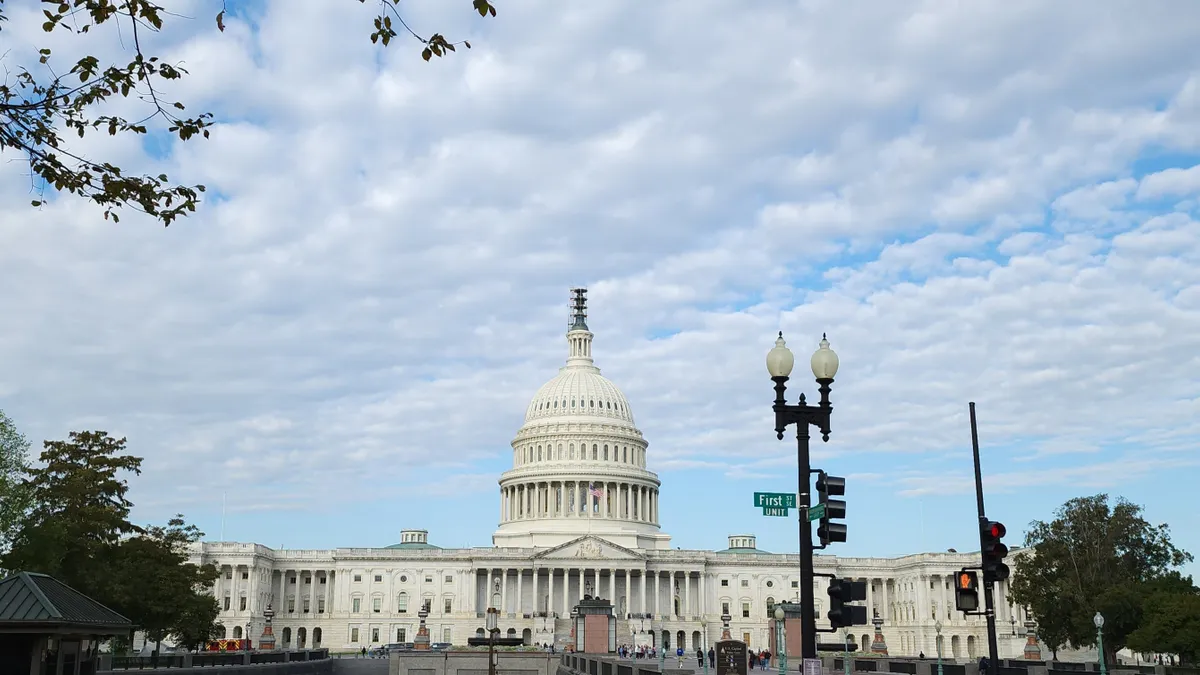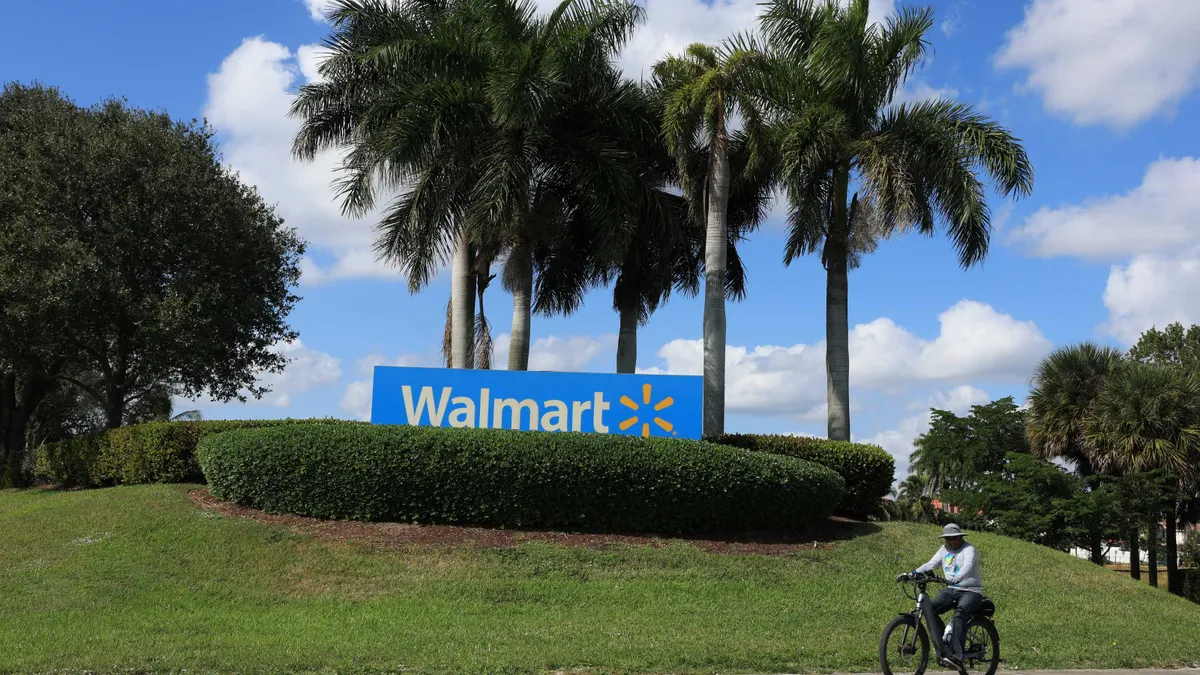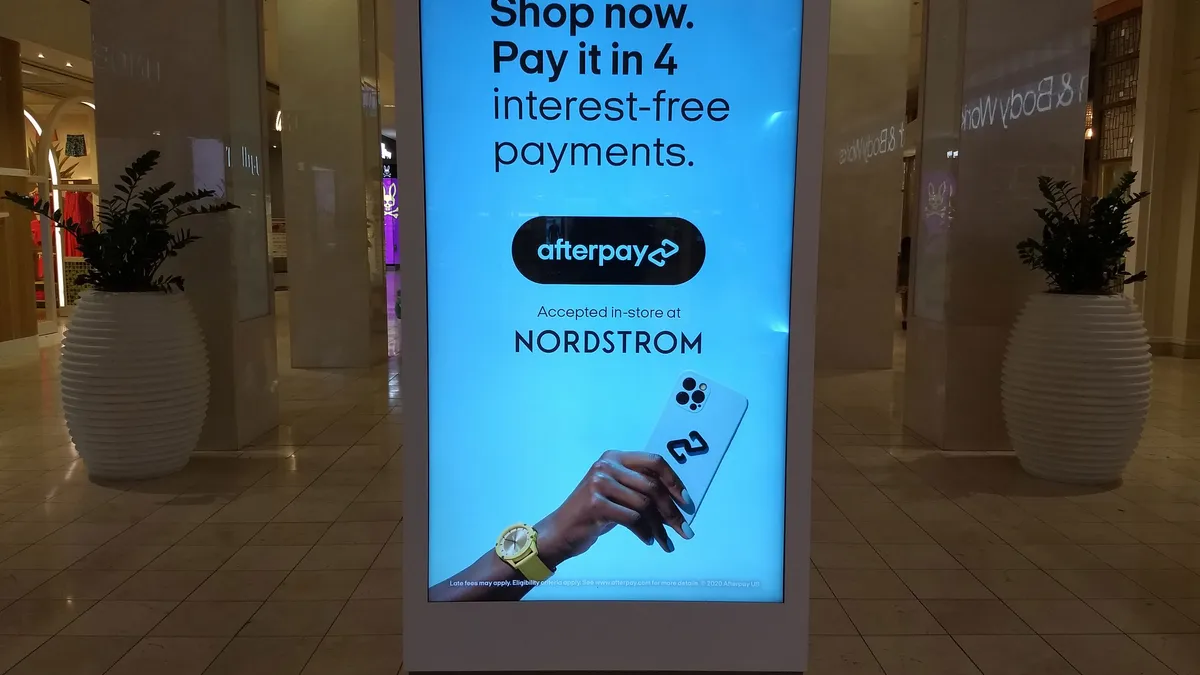An odd pair of payments trends will drive increased regulatory and legislative scrutiny of the industry this year.
Antitrust concerns are leading regulators and lawmakers to crack down on payments plays by dominant companies, such as card network Visa and tech titan Apple. But a surge in new fintech players is propelling new payments services and shaking up standard industry approaches.
While more competition might be expected to offset antitrust concerns, that’s not been so in the payments arena. Instead, the twin trends are doubling the need for increased oversight.
Consider PayPal, a digital payments innovator that helped spawn the next generation of fintechs. Now, a co-founder of a PayPal predecessor, billionaire entrepreneur Elon Musk, is trying to turn his X social media business, formerly Twitter, into a payments company, by way of collecting state money transmitter licenses.
“It's not just PayPal anymore, like it was in the early 2000s,” said Keith Barnett, an attorney with the law firm Troutman Pepper in Atlanta. “Everybody who’s anyone is trying to be a part of payments, be it X, Walmart, Amazon — everyone is trying to jump on the payments bandwagon.”
As the new entrants arrive, offering their payments services to consumers and small business operators, industry regulators and lawmakers are standing by warily, primed to protect would-be users. At the same time, they have an interest in shielding fledgling rivals as they battle powerful legacy behemoths.
The payments industry will be the subject of increasing regulatory scrutiny this year, said Andrew Bigart, a Venable attorney in Washington. As evidence of that trend, he pointed to two developments last year, the Consumer Financial Protection Bureau proposing to extend its oversight to big tech digital wallets and federal bank regulators’ updated guidance on risks related to third-party fintech arrangements.
That bank-fintech cooperation has been around for more than a decade, but now it’s turning more heads as the industry grows. “There's greater regulatory attention on it right now,” said Kristen Larson, an attorney for the law firm Ballard Spahr in Minneapolis.
As a result, payments companies and their advisers are readying for some of the most significant regulatory and legislative changes they’ve experienced since the landmark 2010 Dodd-Frank Wall Street Reform and Consumer Protection Act.
“There are probably more regulatory proposals in various stages of development now than I've ever seen in my career, with the possible probable exception of 2010, when Dodd-Frank passed,” said David Sewell, an attorney with Freshfields who’s co-head of the law firm’s U.S. fintech group. “What is very clear is that the framework is changing.”
Much of that activity is at the federal level, but as the nation grapples with political polarization in an election year, states are stepping up their actions on emerging payments plays.
Antitrust takes centerstage
The Department of Justice is threatening to pursue antitrust enforcement actions to keep major payments and tech companies in check.
Lawyers that cater to the industry expect the DOJ to move forward on probes of the card network companies. The department has reportedly had an ongoing investigation of Visa and its debit card processes for years, but now the company faces fresh scrutiny over how it uses tokenization to lock in merchant clients, according to a report last year from the media outlet Bloomberg. Mastercard disclosed last year that it’s also caught up in a Justice Department probe of its debit card program.
It’s not just the legacy payments players drawing attention. The Justice Department may also take action against Apple, according to a New York Times report this month. That action could also attack its control over payments flows, which software developers, including Fortnite game-maker Epic Games, have contended violate antitrust laws.
Another federal regulatory agency is also planning to tighten oversight of Apple, and other large technology companies offering digital wallets. The Consumer Financial Protection Bureau, led by Director Rohit Chopra, last November proposed to draw big tech digital wallet providers under its supervisory authority.
While the agency suggested only 17 companies would meet a threshold subjecting them to the new CFPB oversight, Troutman’s Barnett said he suspects the rule would apply to more fintechs because there are others that cross the five-million-transactions-per-year threshold.
“The proposed rule will apply to entities that are just simply facilitating payments — they never have to hold, or possess the funds — and so every fintech that provides some sort of app should be concerned about this,” Barnett said.
Open banking raises new issues
In another CFPB proposal from last year that will unfold this year, U.S. consumers will have more leeway to move financial data from one service provider to another. That Personal Financial Data Rights rule aims to give consumers more choices, while stoking more competition.
“I suspect my banking clients may not be super happy about all elements of this rule, but from the fintech perspective, I think it's a real home run,” said Sewell, who predicted further industry expansion as a result. “We could really see a proliferation of new kinds of payments companies and other types of fintechs coming down the pike.”
Also fueling that “open banking” trend, which took hold in Europe last year with the European Union’s Digital Markets Act, is a bill pending in Congress called the Open App Markets Act. It has made little headway since it was introduced in 2021, but it’s another reason payments lawyers believe a similar change is coming to the U.S.
Another bill that could spark change is the Credit Card Competition Act sponsored by Sens. Roger Marshall, a Republican from Kansas, and Dick Durbin, a Democrat from Illinois. They’re taking aim at Visa and Mastercard in trying to require credit card issuers to provide access to more than just those two networks for processing such transactions.
“This would break the near monopoly that Visa and Mastercard currently hold,” Steptoe attorney Stephen Aschettino said by email. “It could lead to lower swipe fees, more competition, and lower prices for consumers. However, it is also possible that the Act could have unintended consequences, such as higher interest rates for consumers.”
On the debit card front, the Federal Reserve Board is expected to move this year to reduce interchange fees on those transactions. Last October, it proposed to lower the cap on the amount of interchange banks can charge and this month it extended a public comment period on that proposal. The Fed hasn’t touched the fees since they were first imposed in 2011, and there’s likely to be a lot of wrangling before a new rule is finalized, based on warring comments so far.
Federal efforts languish
Despite the federal government’s efforts to increase oversight for the growing payments and fintech sphere, its progress has been slow.
“Watching Washington deal with technology in the financial services sector is like watching my 84-year-old father, who I love dearly, open up a new iPhone,” said Chris Daniel, who is chair of the global fintech and payments group at the law firm Paul Hastings. “It's awkward, it's not well-performed.”
There seem to be a lot of aspects that legislators and regulators simply don’t understand, so they get frustrated and act reflexively, explained Daniel, who is based in Atlanta. “It’s challenging at the moment,” he added.
While the CFPB has said in recent years that it would provide more guidance on two rising payment methods — buy now, pay later and earned wage access — it hasn’t. The Office of the Comptroller of the Currency took a first stab at general guidance for buy now, pay later last month though it was principally directed at banks’ management of such “loans” and less informative for non-bank providers, such as Affirm.
“Consumer demand is exceedingly high for these (BNPL) products,” Sewell said. “The regulators are sort of trying to figure it out…and that's usually a formula for something to happen.”
Given the federal government and states both have lending laws as well as consumer protection laws, there’s some tension in how the offerings will be treated. In any case, some states are bolting ahead in the absence of federal clarity.
Loans, or not?
The crucial question on both buy now, pay later as well as earned wage access is whether to categorize that financing as “loans.” With earned wage access, also known as on-demand pay, employees can tap their earned income before a regular payday through EWA providers, sometimes through the employer and sometimes not. With buy now, pay later services, consumers can take possession of goods or services and pay over time, typically four to six weeks.
Last year, Missouri and Nevada passed laws stating EWA financing isn’t a loan, but Connecticut took a more restrictive approach, saying its small business lending laws would apply to some EWA flows. Meanwhile, California’s Department of Financial Protection and Innovation has issued a proposal to treat some EWA advances like loans. The CFPB backed California’s approach.
All of the states’ moves could have the effect of spurring other states to act as well, said Phil Goldfeder, a former New York state legislator who is now CEO of the American Fintech Council. Indeed, this month he testified in front of a Maryland House committee reviewing earned wage access legislation, arguing that the payments practice shouldn’t be considered a loan.
On BNPL, New York Gov. Kathy Hochul has proposed the state require buy now, pay later providers to get licenses to operate in the state. New York has also moved forward on another payments front, following New Jersey in enacting a law that caps the amount retailers and other merchants can impose as a surcharge on credit card transactions.
“It's easier to make law at the state level than at the federal level,” noted Ballard Spahr attorney Ron Vaske, who co-leads the firm’s fintech and payments team. Vaske expects more of that state activity, especially if the outcome of cases pending before the Supreme Court allows states more authority.
Fraud driving more oversight too
Across all aspects of payments, increased fraud has also stoked the need for more consumer protection.
Peer-to-peer payments tools, including Early Warning Service’s Zelle and PayPal’s Venmo, have taken a beating from Congress members and local politicians alike. As a result, there are likely to be more calls for safeguards, industry lawyers said.
“There have been all these emerging payments, as payments are shifting to electronic payments, and new types of fraud to monitor,” Larson noted.
Generally, there is a growing awareness of the need to confront scams in which unwary consumers or employees push payments to bad actors under false pretenses, as opposed to more traditional frauds in which criminals steal payments. That push-payment fraud is increasingly troublesome, industry professionals say.
“You’re going to continue to see that get attention, especially as these services grow,” Bigart predicted.





















